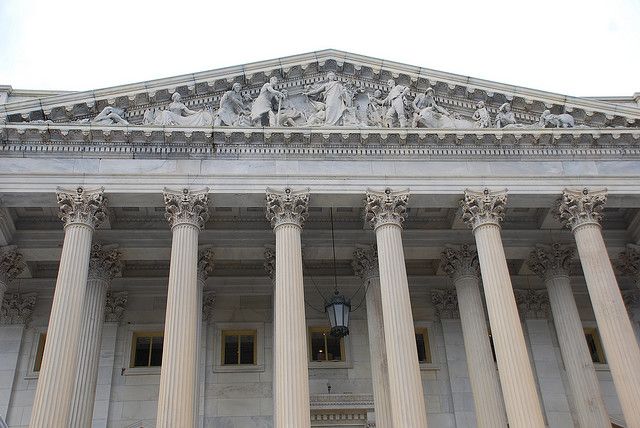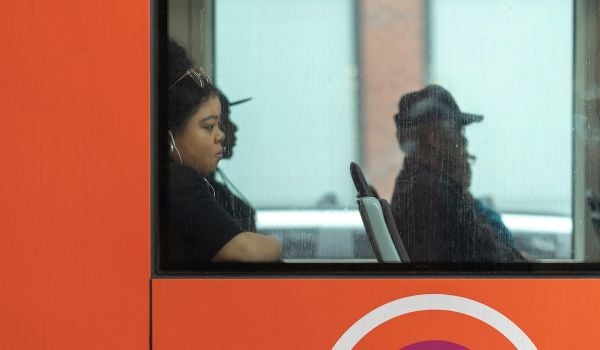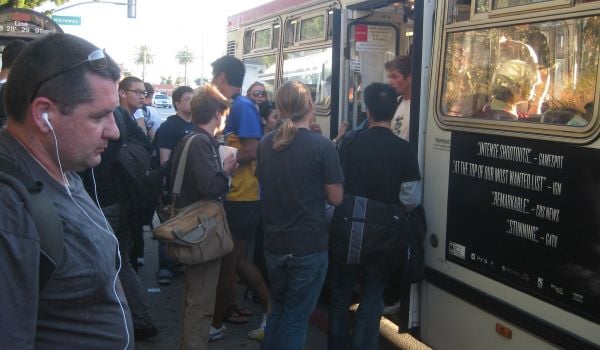This piece originally appeared on Mobilizing the Region.
Last week, 15 days after the Senate passed a bipartisan, forward-thinking transportation bill (MAP-21), Congress stopped short of real reform, settling for a 90-day extension of current policy. Because of various Congressional recesses, there are only 31 legislative work days between now and June 30, when policy is set to expire. With time so short, House passage of the Senate’s MAP-21 bill, or a bipartisan bill in its mold, seems to offer the best shot at ensuring that this extension—the ninth since September 2009—is the last.
House GOP Support for MAP-21?
House leaders did not allow a vote on MAP-21 last week, but some Republican legislators are beginning to argue that the Senate’s bipartisan bill offers the clearest path forward if the House can’t come to consensus on a bill of its own. Last week, a spokesperson for Rep. Peter King (R-N.Y.) told Politico that King would vote for the Senate transportation bill if it came to the floor. Three other GOP members—Rep. Charlie Bass of New Hampshire and Illinois Reps. Robert Dold and Judy Biggert—wrote to House leadership, asking that MAP-21 be brought to the floor for a vote.
Indeed, if passed by the House, MAP-21 or a similarly bipartisan bill could likely make it through conference committee quickly and be signed into law. The Senate bill would provide stability for states through 2013, avoid counterproductive cuts, and make the transportation system more efficient and environmentally sustainable, thanks to a number of positive reforms.
The Fate of HR 7 and the “Shell Bill”
House leadership has previously claimed that it would try to revive a version of HR 7, the disastrous five-year, $260 billion transportation bill proposed in February. The bill proved too controversial to pass, thanks to provisions such as ending dedicated transit funding, eliminating pedestrian and bicycle safety funds, eroding local control, gutting environmental review and opening up the Alaska National Wildlife Refuge and coastal waters to oil drilling. The legislation has attracted widespread opposition from a variety of groups and government officials on both sides of the aisle.
House leadership has also suggested another route: They may attempt to pass a “shell bill,” which contains language on oil drilling and other energy policy, but virtually no transportation provisions. The details of a final bill would then be hashed out by a House-Senate conference committee.
Frustration With Extensions
While some legislators seemed content enough to pass an extension, the continued reliance on short-term bills has infuriated business and construction groups.
Even in the face of the most recent extension, calls for the House to pass a multi-year bill have continued. “We now urge House leaders to reach across the aisle to create a bipartisan measure that can find the broad support typical of past transportation bills, as well as the Senate’s current bill,” said Transportation for America Director James Corless in a statement.
Janet Kavinoky, the U.S. Chamber of Commerce’s executive director for transportation and infrastructure, told The Hill that 90 days was enough time for Congress to pass a transportation bill—but only if House members put “their nose to the grindstone” now.
For more on recent transit-related legislation in Congress, check out the following stories:
Senate Bill Surges Forward; House Bill Bogs Down
What Transit Advocates Could Learn from SOPA
Opposing the House Transit Bill That’s So Bad It “Defies Belief”
Time to Fight: Unpacking the House’s Transportation Bill

Steven Higashide is one of America’s leading experts on public transportation and the people who use it. As director of research for the national foundation TransitCenter, Higashide has authored groundbreaking reports that have redefined how decision-makers and journalists understand transit. He has taken the bus in 28 cities around the US and the world.




_600_350_80_s_c1.jpg)











